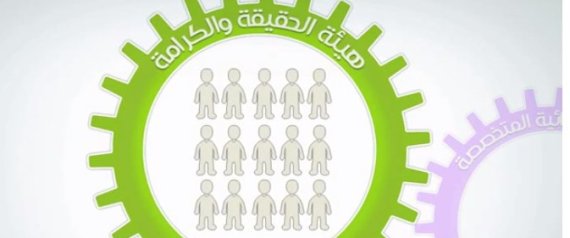Cairo—After a careful selection process, the Tunisian National Constituent Assembly has launched the 15-member Truth and Dignity Commission (TDC) in a pioneering effort toward transitional justice for gross violations over the period since the country’s independence. The Habitat International Coalition and its Housing and Land Rights Network welcome the establishment of the TDC in Tunisia as the first operational transitional-justice mechanism in the country that led the 2011 Arab Spring. HIC and HLRN consider this to be an encouraging step for Tunisians seeking remedy and reparations from past abuses, and a symbol of hope for the pursuit of justice in other countries in the Middle East/North Africa region.
On 15 December 2013, Tunisia’s National Constituent Assembly adopted the Organic Law on Establishing and Organizing Transitional Justice after a broad national-consultation process. The law lays out a comprehensive approach to addressing past human rights abuses. In addition to establishing the legal basis for the Truth and Dignity Commission with full financial and administrative independence, the law also provides for the establishment of Special Chambers in the Courts of First Instance with judges trained in human rights and transitional justice processes (Article 8). Those Special Chambers will have jurisdiction over cases referred by the Truth and Dignity Commission involving electoral fraud, financial corruption, misuse of public funds, and forcing people to migrate for political reasons.
The law addresses reparations, accountability, institutional reform, vetting, and national reconciliation, all of which are considered within the special procedures of transitional justice. It also creates a Fund for the Dignity and Rehabilitation of Victims of Tyranny” (Article 41). The TDC is mandated to investigate gross human rights violations that were committed by the state, or those acting in the name of the state and under its protection from 1 July 1955 until the issuance of the transitional justice law. Its mission will extend over a four-year term, subject to renewal for up to one year.
HIC-HLRN coordinator spoke from Cairo, saying “We look forward to reparations for all Tunisian victims of gross violations of their human rights.” He added, “We also hope that Tunisian transitional justice will provide appropriate remedy for victims of economic and social rights violations, including those who were arbitrarily dispossessed and evicted of their lands and properties to the detriment of their livelihood.” HIC-HLRN has monitored and reported such violations across the countries of the region before, during and after the 2011 uprisings. In Tunisia, these involve the confiscation of lands and properties for the enrichment of the former president Ben Ali and his close associates. As a result, farmers have been deprived of thousands of hectares of productive lands.[1] The political instability and lack of reform over three years of transition have impeded restitution of these vital landholdings.[2]
[1]Report of the National Commission to Establish the Fact about Corruption and Embezzlement تقرير اللجنة الوطنية لتقصي الحقائق حول الفساد والرشوة”) [Arabic], at: http://www.hlrn.org/img/documents/RapportCorruption_CICM.pdf, at. p. 56.
[2] “Tunisie. Restitution des fermes accaparées par l’ex-clan au pouvoir,” Kapitalis (7 January 2012), at :
http://www.kapitalis.com/economie/7723-tunisie-restitution-des-fermes-accaparees-par-lex-clan-au-pouvoir.html; « Nader Ghazouani, comment un assureur devient agriculteur grâce à la troïka ? » Business News (22 January 2014), at :














